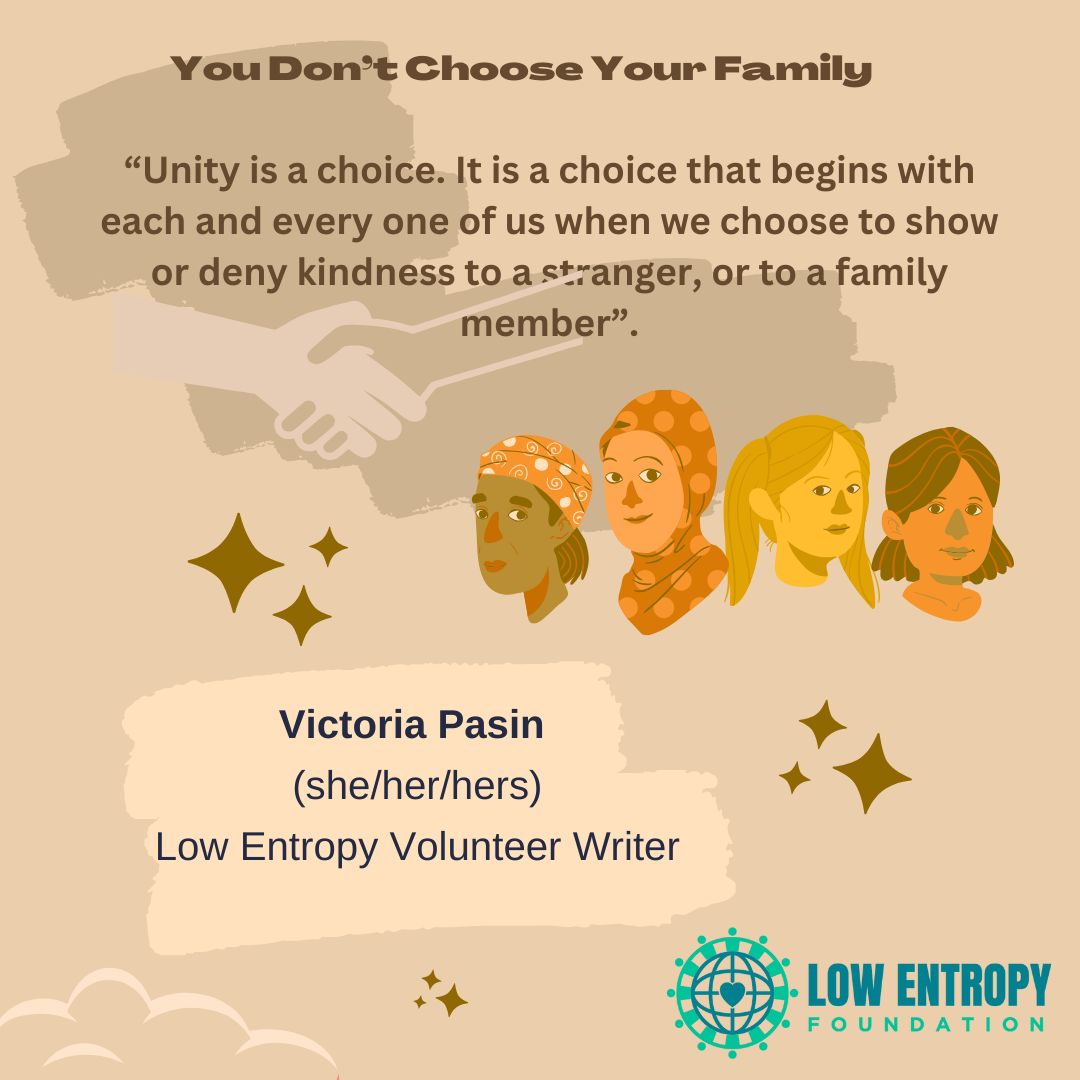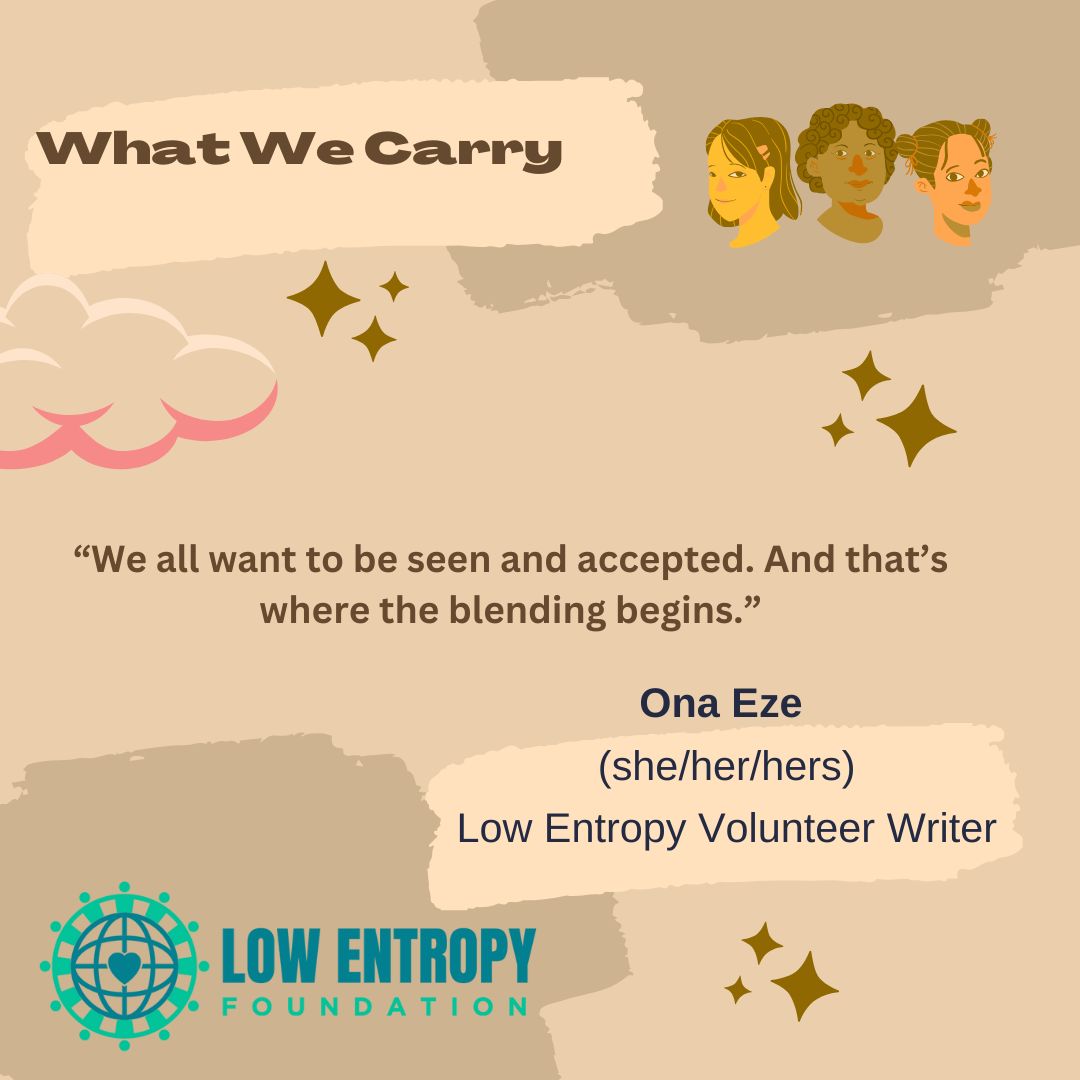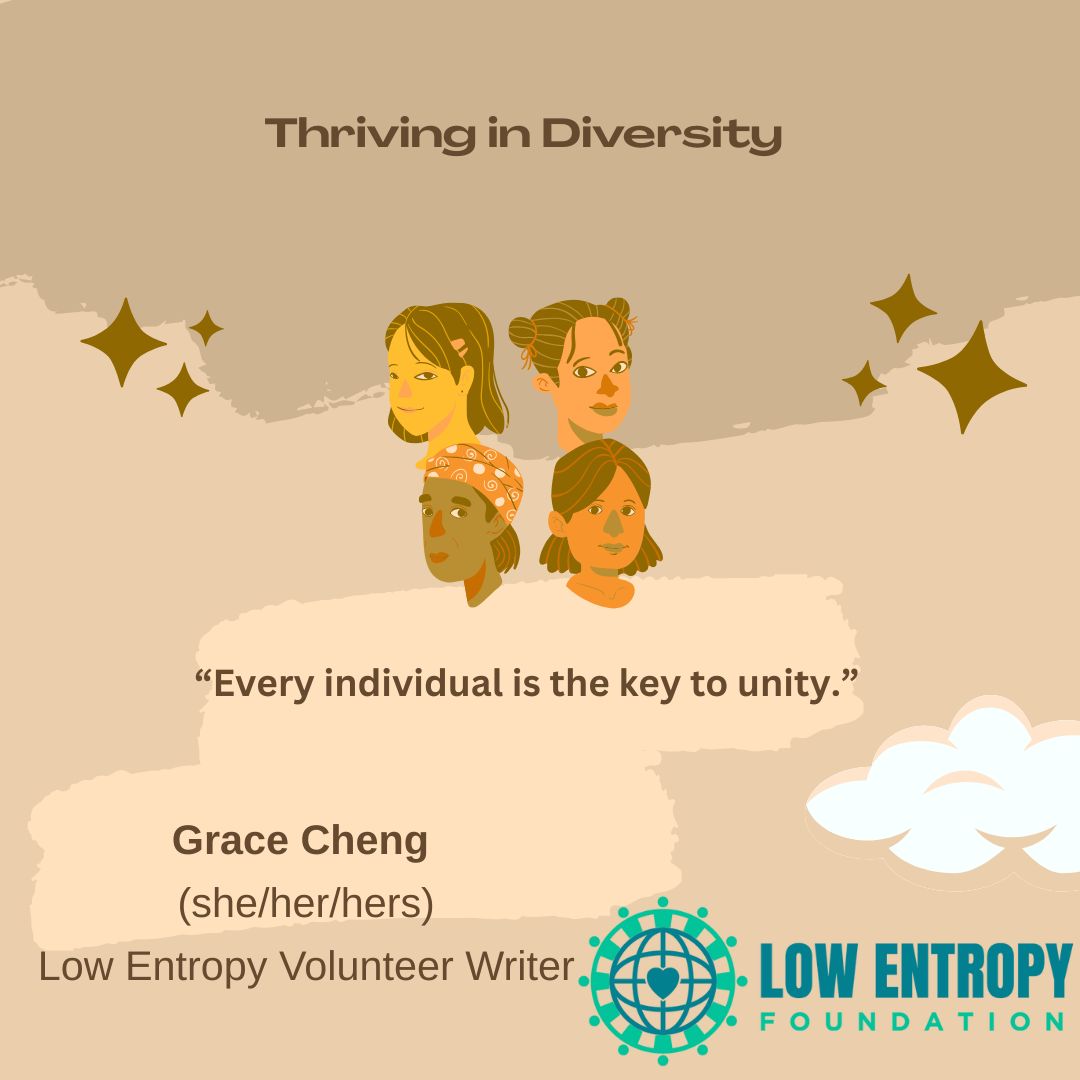Victoria Pasin, Low Entropy Volunteer Writer
I was born to two bleeding-heart liberal parents. Both, especially my dad, have always described themselves as stereotypically progressive. My dad’s two brothers, that is, my uncles, are the polar opposite. All three brothers maintain a significant interest in Canadian and American politics, and are careful to keep up with all possible news outlets.
For years, I, as well as my entire family, have grown extremely accustomed to loud arguments, with debates lasting throughout the evening, particularly throughout elections, as well as assorted scandals, and major policy wins and losses. Both of my uncles are proud supporters of generally conservative ideals. Whenever major decisions are made, or a politician gives a major address, or has a major meeting, the phone starts ringing. As long as news is breaking, at least one of the three has an opinion, and another will have a response. However, for all their differences of beliefs, there is never a lack of respect.
Although a phone call may start with passionate political discourse, it never ends in bitterness. Politics is a conversation starter, rather than a divisor. That is a deliberate choice. In a world in which politics has divided so many families, the three brothers refuse to allow it to divide them. This doesn’t mean that they hold back in their arguments. If anything, it means the opposite. It means that, when they do argue, they refuse to truly demean each other’s characters. They may banter for hours on end, but they all know that they will never stop having each other’s backs in times of crisis.
Last August, my paternal grandmother, their mother, suffered a stroke due to a complication after a major surgery. Although this event was undoubtedly tragic, it has been beautiful to watch my dad and his siblings quickly coordinate to ensure that she is rarely alone after finally leaving the hospital. Whether it is one of them, or my cousins and I, she is taken care of. In the midst of this catastrophe, it is never a hardship for them to collaborate in order to create a schedule for basic things, such as installing safety equipment and meal planning for my grandmother. This support also extends to times of great celebration, such as when one of my uncles recently found out that he was becoming a grandfather in a few short months. My dad was his first call to announce the news.
Can a person’s political allegiance compromise their moral character? It certainly can. However, there is a difference between a person with a compromised character and a person with a differing political opinion. My uncles are pillars of their community. Both are extremely close to their family. One in particular volunteers often with youth sports, and holds a minor position in his municipal government. They are respectful and kind at family functions. Why should politics be a source of disharmony within our familial community?
With as much division in the world as there is, I’ve always believed that this mutual respect is the foundation of any attempt at peace on this earth. It is a universal truth that it is impossible for any group of people to agree completely on virtually anything. Through their boisterous banter, my family has taught me that attacking someone’s character, rather than their logic, is a sure way to get oneself nowhere.
I have heard countless people, be they friends, family, or teachers, despair due to a lack of unity amongst the global community. I feel that something is always left out of the discussion, on the topic of world peace and global cooperation. Unity is a choice. It is a choice that begins with each and every one of us when we choose to show or deny kindness to a stranger, or to a family member.
We do not choose our family. Rather, we are stuck with one particular couple of parents, and if we’re lucky, grandparents, uncles, aunts and cousins, by accident of birth. Whether we like it or not, these people gradually shape our worldview. Whether we like it or not, it is impossible to achieve peace on a grander scale if it is not achieved at the smallest scale of individuals going about their lives.
My thesis is simple. The beginning of any sort of unity and peace in the world begins with each person choosing kindness with those that they are closest to. It is easy to be kind to those we agree with. It is often most difficult to show that same kindness to a person with a different worldview. Therefore, I issue the challenge to be kind and pursue a relationship with someone who possesses an opposing worldview. Embrace discomfort. It certainly will widen one’s horizons.
—
Leave your thoughts for Victoria in the comments below. You can also follow us on Facebook, Instagram, TikTok, LinkedIn and YouTube to stay up-to-date with Low Entropy news!









